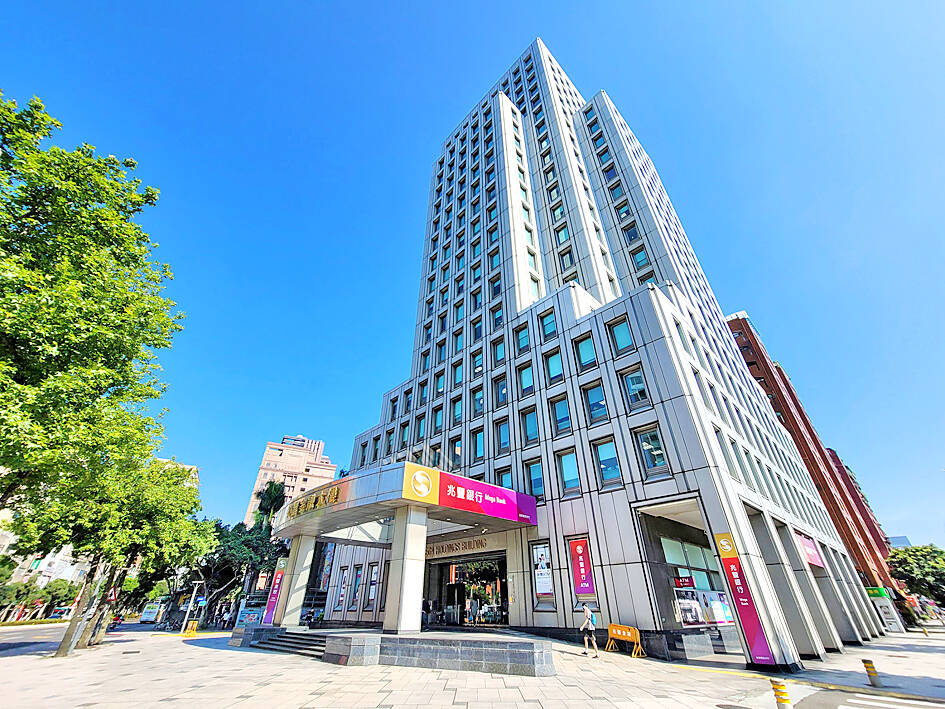In July, total lending by domestic banks had gained 5.4 percent year-on-year, or NT$425.3 billion (US$13.29 billion), allowing the sector to rake in a record profit of NT$45.29 billion thanks to financing needs for working capital and dividend issuance, the Financial Supervisory Commission said.
The advance reflected a seasonal pickup in loan demand for July, the high season for Taiwanese companies to distribute cash and stock dividends. Banking Bureau Deputy Director-General Lin Chih-chi (林志吉) told a media briefing on Thursday.
It signified an improvement in business, as firms needed money to buy materials for export use, Lin said.

Photo on courtesy of Mega International Commercial Bank
Lin cited local lenders as saying that the increased lending went mainly to corporate customers, who wished to bolster working capital, which is a good sign that an economic recovery is approaching.
Specifically, local makers of flat panels, personal computers, and LEDs indicated that their inventory has returned to healthy levels following several quarters of adjustments, Lin said.
Global trade is in the process of bottom building and might come out of the woods toward the year-end, the financial official said.
Lin quoted other local banks as saying that strong demand for components for artificial intelligence applications helped make local tech firms less conservative.
CTBC Bank (中信銀行) reported the biggest loan increase valued at NT$167.2 billion, followed by Cathay United Bank’s (國泰世華銀行) NT$36.2 billion and E.Sun Commercial Bank’s (玉山銀行) NT$34.2 billion, Lin said.

Taiwan’s rapidly aging population is fueling a sharp increase in homes occupied solely by elderly people, a trend that is reshaping the nation’s housing market and social fabric, real-estate brokers said yesterday. About 850,000 residences were occupied by elderly people in the first quarter, including 655,000 that housed only one resident, the Ministry of the Interior said. The figures have nearly doubled from a decade earlier, Great Home Realty Co (大家房屋) said, as people aged 65 and older now make up 20.8 percent of the population. “The so-called silver tsunami represents more than just a demographic shift — it could fundamentally redefine the

The US government on Wednesday sanctioned more than two dozen companies in China, Turkey and the United Arab Emirates, including offshoots of a US chip firm, accusing the businesses of providing illicit support to Iran’s military or proxies. The US Department of Commerce included two subsidiaries of US-based chip distributor Arrow Electronics Inc (艾睿電子) on its so-called entity list published on the federal register for facilitating purchases by Iran’s proxies of US tech. Arrow spokesman John Hourigan said that the subsidiaries have been operating in full compliance with US export control regulations and his company is discussing with the US Bureau of

Businesses across the global semiconductor supply chain are bracing themselves for disruptions from an escalating trade war, after China imposed curbs on rare earth mineral exports and the US responded with additional tariffs and restrictions on software sales to the Asian nation. China’s restrictions, the most targeted move yet to limit supplies of rare earth materials, represent the first major attempt by Beijing to exercise long-arm jurisdiction over foreign companies to target the semiconductor industry, threatening to stall the chips powering the artificial intelligence (AI) boom. They prompted US President Donald Trump on Friday to announce that he would impose an additional

China Airlines Ltd (CAL, 中華航空) said it expects peak season effects in the fourth quarter to continue to boost demand for passenger flights and cargo services, after reporting its second-highest-ever September sales on Monday. The carrier said it posted NT$15.88 billion (US$517 million) in consolidated sales last month, trailing only September last year’s NT$16.01 billion. Last month, CAL generated NT$8.77 billion from its passenger flights and NT$5.37 billion from cargo services, it said. In the first nine months of this year, the carrier posted NT$154.93 billion in cumulative sales, up 2.62 percent from a year earlier, marking the second-highest level for the January-September